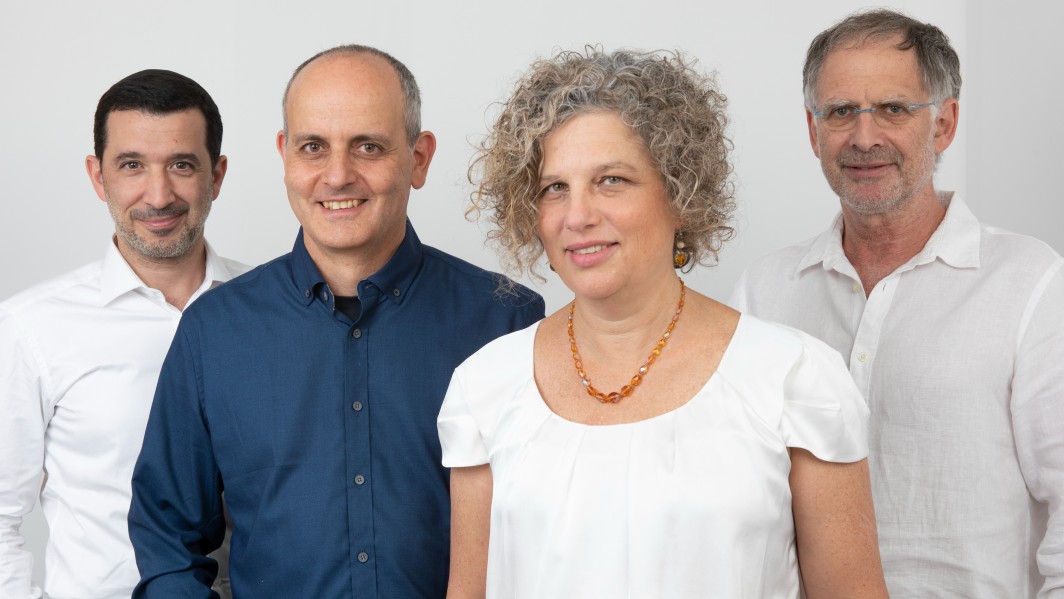Pangea Biomed Launches with World’s Most Advanced Multi-Cancer Response Predictor, Increasing Patient Benefits from Precision Oncology by 5x

-
Pangea is developing a “gene social graph” by looking at gene group behavior to match patients with the right therapies, increasing the number of patients who can benefit from precision oncology by 5x
-
Pangea’s ENLIGHT platform, the most advanced cancer response predictor scalable to all cancer types and immuno-oncology drugs, uses network effects and RNA-sequencing to identify and observe gene group interactions to determine a patient’s best treatment match
-
With $7M in seed funding and partnerships underway with the National Cancer Institute and Sheba Hospital, one of the top-ranked hospitals in the world, Pangea is poised to address the gap between existing precision oncology treatments and patients that have yet to benefit from them
Pangea Biomed, the RNA-focused precision oncology biotech company, today debuts the world’s most advanced multi-cancer response predictor to increase the effectiveness of precision oncology. The company is also announcing $7M in seed funding led by NFX, which will be used to grow its research and development team, and expand its partnerships and commercial collaborations to support in designing clinical trials and direct drug discovery efforts.
Each year, one in every six deaths is attributed to cancer. Immunotherapy and precision oncology have been around for decades and have provided hope for those afflicted with cancer. However, less than 10 percent of cancer patients benefit from today’s precision oncology treatments. With the launch of its ENLIGHT platform, Pangea aims to dramatically increase the number of patients who benefit from precision oncology treatments. Pangea’s technology works in two ways: it first creates a “social graph” of genes and then uses it, together with the data from each individual patient’s tumor, to match patients with the right drugs.
“Analyzing genes as a group versus as individuals provides deeper insight into how best to attack the cancer. As such, you could think of Pangea’s solution as building a social graph for cancer therapy,” said Tuvik Beker, Ph.D., CEO of Pangea. “In leveraging this insight, we will be able to match the right treatments to the right patients and unlock multiple potential therapies tailored to each individual tumor, significantly expanding currently available treatment options.”
Pangea is redefining precision oncology by coupling the hidden power of RNA sequencing with ML-enabled network effects. As a result, Pangea’s ENLIGHT platform can surface relevant biological insights to pinpoint the best path toward combating a patient’s cancer. Pangea is:
-
Using RNA in a new way: Interpreting tumor RNA data alongside genomic data to identify treatment opportunities for each individual tumor.
-
Building a “gene social graph” for cancer: Unsupervised AI techniques are used to visualize relationships between groups of human genes and existing cancer treatments. The unsupervised approach makes the platform scalable and effective in situations where large training cohorts aren’t available, as is the case in most drug development scenarios.
-
Democratizing precision oncology: The company’s proprietary ENLIGHT Matching Score (EMS) enables oncologists to identify a treatment’s efficacy potential for each individual patient, regardless of cancer type.
-
Monitoring early treatment: The ENLIGHT platform has the potential to support monitoring for early signs of resistance to treatment and provide guidance for changing treatments to match the evolving nature of a patient’s disease.
A retrospective analysis of 1,000+ patients has further validated Pangea’s methods. The analysis, which studied patients who received either immunotherapy or targeted therapy, demonstrated that a high EMS is associated with a significantly better response to treatment. A testament to its efficacy, Pangea’s technology has proven successful for patients who would otherwise not qualify for precision cancer care.
“There’s a gap that exists between the immense resources going toward cancer research and care and the percentage of patients benefiting from it,” said Omri Amirav-Drory, General Partner at NFX Bio. “Pangea is bridging this gap and democratizing precision oncology by using network effects and RNA data to match cancer patients to therapies at scale. We’re excited to partner with them as they revolutionize precision oncology and drug development for the more than 18 million cancer patients today.”
Founded by three leading cancer researchers and led by computational biologists, bioinformaticians, pharmacologists, and statisticians, Pangea is uniquely positioned to identify industry pain points and leverage domain expertise to best solve for them. The company is led by CEO Tuvik Beker, previously the co-founder and Executive Chairman of MedAware Ltd, a medication safety monitoring platform. Co-founders Eytan Ruppin, Chief of the NCI Cancer Data Science Lab, Ze’ev Ronai, Director of the NCI-designated Cancer Center at Sanford Burnham Prebys Discovery Institute, and Eyal Gottlieb, Laura and Isaac Perlmutter Chair of Cancer Research at Technion Israel Institute of Technology, currently sit on the company’s board of scientific advisors.
They are accompanied on the Scientific Advisory Board by Raanan Berger, MD, Ph.D., Director of the Cancer Center at Sheba Medical Center; Ezra Cohen, MD, FRCPSC, FASCO, co-director of UC San Diego Health’s Precision Immunotherapy Clinic; Dan A. Landau, MD, Ph.D., Assistant Professor at Weill Cornell Medical College and Core Member at the New York Genome Center; J. Silvio Gutkind, Ph.D., Professor and Chair of the Department of Pharmacology at UCSD School of Medicine and Associate Director for Basic Science at Moores Cancer Center; and Gideon Rechavi, MD, Ph.D., head of Sheba Cancer Research Center and head of the Wohl Institute for Translational Medicine.
The company is collaborating with clinicians and researchers from some of the world’s best institutes, including Massachusetts General Hospital, the National Cancer Institute, and Sheba Hospital, the largest hospital in Israel and one of the top ten hospitals in the world.
“Pangea’s approach holds promise for more accurate and effective therapeutic intervention,” said Prof. Raanan Berger, Director of Sheba Comprehensive Cancer Center. “The company is increasing the proportion of patients eligible for potent modern therapies.”
Pangea’s research has been published in Cell, Science Advances, Cancer Cell and Nature Communications.






